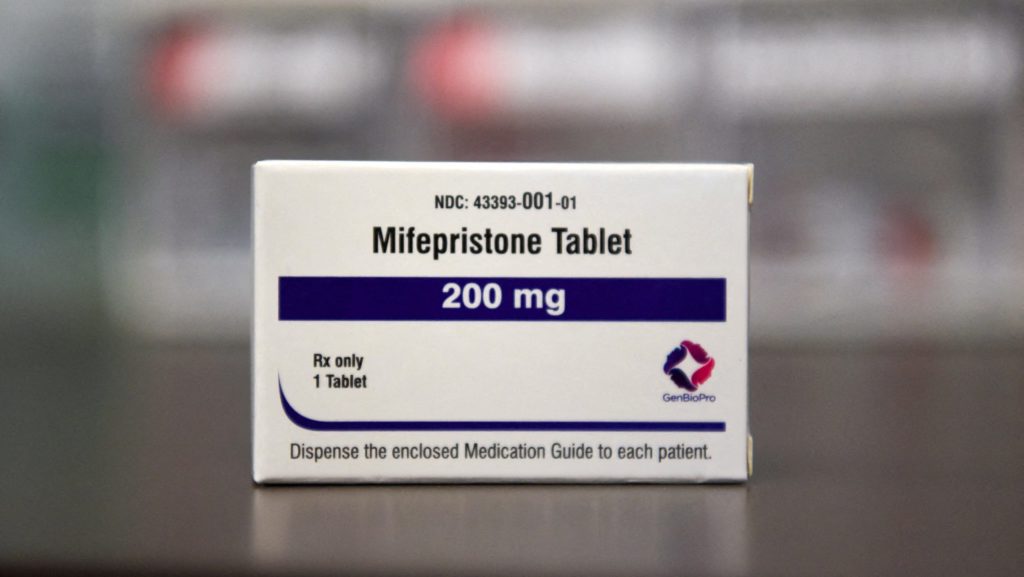A divided federal appeals court on July 15 upheld a West Virginia law restricting the use of drugs when the intent is to use them for abortion, such as mifepristone, which is sometimes also used for managing early miscarriage.
"The question before us is whether certain federal standards regulating the distribution of the abortion drug mifepristone preempt the West Virginia law as it applies to medication abortions," Judge J. Harvie Wilkinson wrote in the opinion for the 2-1 decision by the 4th U.S. Circuit Court of Appeals. "The district court determined there was no preemption, and we now do the same. For us to once again federalize the issue of abortion without a clear directive from Congress, right on the heels of Dobbs, would leave us one small step short of defiance."
After the June 2022 U.S. Supreme Court decision in Dobbs v. Jackson Women's Health Organization, when the high court overturned its previous abortion precedent, several states moved to restrict abortion, including medication-based abortions.
West Virginia's abortion ban, the Unborn Child Protection Act, includes the use of medicine or drugs with the intent of carrying out an abortion. The law effectively bans the use of mifepristone, which is typically used in combination with misoprostol, for first trimester abortion.
However, the same two-drug combination is also used in some early miscarriage care protocols. In that case, mifepristone does not run afoul of West Virginia's law, which specifically excludes miscarriage from its definition of abortion.
In 2024, the Supreme Court dismissed a challenge to mifepristone by a coalition of pro-life opponents of the FDA's loosened restrictions on the drug, which included making it available by mail. The court found they lacked standing to bring the suit.
The pro-life coalition had argued the government violated its own safety standards in loosening restrictions on mifepristone, but the FDA argued the drug poses statistically little risk to the mother in the early weeks of pregnancy.
In February 2023, West Virginia's then-Attorney General Patrick Morrisey, now the state's Republican governor, asked a federal district court in February 2023 to uphold the Mountain State's law from a challenge by GenBioPro. The major manufacturer of generic mifepristone argued West Virginia's law, by restricting its FDA-approved use for abortion, in effect banned their product.
In August 2023, that court partially dismissed the lawsuit challenging the law, and GenBioPro subsequently appealed its case to the 4th Circuit.
Morrisey hailed the decision as a "big win" in a statement.
"I defended this law as Attorney General and am proud to see a victory in this case," he said. "West Virginia can continue to enforce our pro-life laws and lead the nation in our efforts to protect life."
GenBioPro's challenge to West Virginia's abortion ban argued it was actually preempted by federal law.
"The court is allowing the state to continue putting those seeking medication abortion care in harm's way," GenBioPro CEO Evan Masingill said in a statement. "The panel's ruling allows states to restrict access to medications that FDA has deemed safe and effective, threatening a dangerous ripple effect on the availability of essential medications in this country. As we have always made clear, GenBioPro will not stop fighting to ensure all people can access safe, evidence-based healthcare."
But the federal appellate court found that preempting West Virginia's law in this instance could set a precedent that "would upend the federal-state balance by supplanting every state law tangentially touching a federal domain."
In a statement, Erin Hawley, senior counsel at Alliance Defending Freedom -- a legal organization that assisted Morrisey in the case, said the circuit court "rightly refused GenBioPro's invitation to federalize the issue of abortion."
"We're pleased the 4th Circuit agreed that the 2007 amendments to the Federal Food Drug and Cosmetic Act do not forbid the states from setting minimum safety standards for high-risk drugs or enacting legislation that protects life," added Hawley, who is also the wife of Sen. Josh Hawley, R-Mo.
OSV News reached out to the Catholic Conference of West Virginia for comment.
The Catholic Church teaches that all human life is sacred from conception to natural death, and as such, opposes the use of medicine when it is intended to cause direct abortion, which takes the life of the unborn child. However, the church also does not oppose the use of medicine when it is intended for restoring the body to health or life, which it calls "precious gifts entrusted to us by God."
A synthetic steroid, mifepristone works by blocking the hormone progesterone, which is necessary for pregnancy to continue. When used in combination with misoprostol, which causes contractions, it can induce a "medication abortion." U.S. providers typically do not recommend the use of the two-step pill protocol for abortions beyond 10 weeks into a pregnancy.
According to the abortion research firm Guttmacher Institute, medication-based abortion accounted for 63% of all U.S. abortions in 2023 -- an increase from 53% in 2020.
Approved by the FDA for early abortion in 2000, mifepristone gained the moniker "the abortion pill" -- but that designation has become no longer accurate as the drug within the past decade began to be used for the morally legitimate purpose of miscarriage care.
In recent years, the American College of Obstetricians and Gynecologists updated its protocols to recommend consideration of mifepristone and misoprostol in combination as more effective than misoprostol alone for early miscarriage care based on research published since 2018. That research suggested the drug combination was more effective in expelling any fetal remains and residual pregnancy tissue from the womb, and thus reducing the need for their surgical removal after the miscarriage of a baby.
According to the National Library of Medicine, an estimated 26% of all pregnancies, and up to 10% of clinically recognized pregnancies, end in miscarriage, the loss of pregnancy less than 20-weeks gestation.

